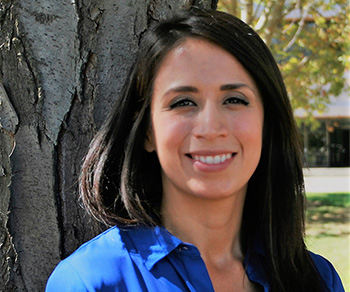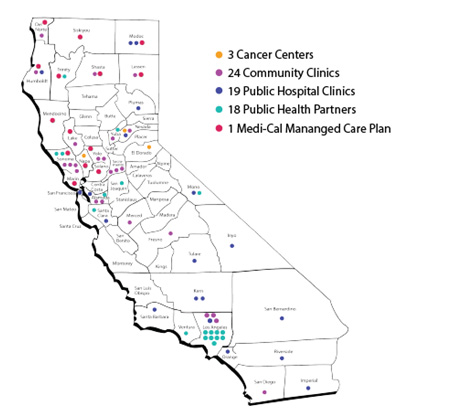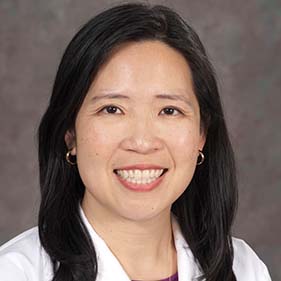UC Davis Health is advancing tobacco treatment for Medi-Cal members
Two new grants to help develop better tobacco cessation programs, in partnership with health systems and plans
For millions of smokers, quitting smoking is hard. With two new grants, Elisa Tong, professor of medicine at UC Davis Health and medical director of the UC Davis Comprehensive Cancer Center’s Stop Tobacco Program, is working to improve tobacco cessation programs and make them more accessible.
“Smoking is the leading preventable cause of death in the U.S., responsible for about one in five deaths annually. That’s 1,300 deaths every day!,” said Tong, who is a faculty member affiliated with the UC Davis Center for Healthcare Policy and Research (CHPR).
According to the Centers for Disease Control and Prevention (CDC), cigarette smoking is responsible for more than 480,000 deaths per year in the United States. This includes more than 41,000 deaths resulting from secondhand smoke exposure.
Smoking is the leading preventable cause of death in the U.S., responsible for about one in five deaths annually. That’s 1,300 deaths every day!”—Elisa Tong, CHPR-affiliated faculty and internist at the UC Davis Comprehensive Cancer Center
Quitting smoking improves a person’s health and reduces their risk of many diseases, including heart disease, cancer and lung disease. Yet, fewer than one in ten adult cigarette smokers succeed in quitting each year.
As the principal investigator, Tong is leading the new efforts to advance tobacco treatment for better health of people on Medi-Cal, the California Medicaid program that covers 1 in 3 low-income Californians. California alone has an estimated 3.2 million adult tobacco users and Medi-Cal has a higher proportion of smokers than the general population.

Helping California to quit smoking
The first project is CA Quits.
CA Quits hosts a statewide tobacco learning collaborative and workgroups for health systems and plans serving Medi-Cal members. The program is now funded by a 3-year $2.6 million grant from the California Department of Public Health’s California Tobacco Control Branch. CA Quits is housed in the Center for Healthcare Policy and Research.
A policy brief from an initial 5-year phase of CA Quits highlights how over 100 health systems, Medi-Cal managed care plans and public health partners have partnered on improving tobacco treatment. The new grant will allow Tong and the team to expand the project and advance the delivery of tobacco treatment with public hospital clinics and Medi-Cal managed care plans.

“This grant is more focused on population health strategies and health equity,” said CA Quits Project Director Cindy Valencia. “We will work with public hospital clinics- including the five University of California medical centers- on improving and reporting on tobacco quality metrics and continue working with teams across the Medi-Cal managed care plans.”
The team has helped build capacity with shared learning over the past five years. Now, they are focusing more on population health strategies and encouraging health systems to identify their patients or members who are tobacco users and examine the impact of proactive outreach on health equity.
Quitting flavored tobacco

Flavored tobacco products like menthol cigarettes have contributed to tobacco-related health disparities for African Americans and other communities. With the new state law banning the retail sale of flavored tobacco, the CA Quits team has launched a health equity campaign this year to encourage people to quit flavored tobacco.
“We're launching a large mailing campaign with the state health department that will reach out to seven million Medi-Cal households. It points people to free help to quit flavored tobacco,” Tong shared.
The team is partnering with the state quitline Kick It California, which provides free counseling that has shown to double the chances of people quitting smoking for good.
Studying tobacco treatment strategies for health equity
The second project addresses health equity. Tong was awarded a 3-year $1.17 million grant to work on improving “health equity in tobacco treatment with a population health management strategy.”
This project is in partnership with Kick It California and the L.A. Care Health Plan, the largest Medi-Cal managed care plan. The project is funded by the Tobacco-Related Disease Research Program (TRDRP), a program run by the Research Grants Program Office (RGPO) at the University of California, Office of the President.
The new grant follows the completion of Tong’s TRDRP Community Practice-Based Research award with LA County Department of Health Services, which demonstrated an effective population-based tobacco treatment strategy.
“In this research grant, we hope to improve how L.A. Care can identify its members who smoke and test outreach strategies for population health and health equity,” Tong said. “Latino Medi-Cal members who smoke, in particular, report less advice to quit from health professionals, partly because of fewer clinic visits. We want to demonstrate effective strategies to reach people outside of the clinic that can help reduce that gap.”
Kick It California will call and offer free cessation counseling and education to the diverse L.A. Care members identified as tobacco users.
“We are excited to partner with UC Davis Health on this important effort to reduce the smoking and nicotine addiction and demonstrate more effective strategies to better serve our members to live healthier lives,” said Alexander Li, L.A. Care’s chief health equity officer. “Many of our members are people of color, non-English speakers, and live in poverty.”
L.A. Care Health Plan is the nation's largest publicly operated health plan serving more than 2.7 million members. Its mission is to provide access to quality health care for Los Angeles County's vulnerable and low-income residents and to support the safety net required to achieve that purpose.
Helpful resources
• Free state quitline
• Asian Smokers Quitline
• UC Davis Health Education Tobacco Treatment program
• UC Davis Comprehensive Cancer Center Stop Tobacco Program
Relevant Stories:
The Center for Healthcare Policy and Research’s mission is to facilitate research, promote education, and inform policy about health and health care. The goal is to improve the health of the public by contributing new knowledge about access, delivery, cost, quality and outcomes related to health care and providing rigorous evidence to policymakers and other stakeholders. CHPR executes its mission through interdisciplinary and collaborative research; education and career development; and research synthesis and dissemination. For more information, visit health.ucdavis.edu/chpr.





